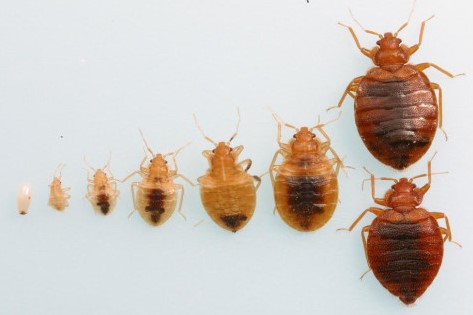Bed bugs can be a significant nuisance, especially when trying to get a good night’s sleep. Of course, this is something you don’t want to experience. So, what is the way forward?
First off, you should understand their feeding habits. And this isn’t just crucial if you are already dealing with an infestation, it is also key if you simply want to know more about these pests. How often do bed bugs feed? Discovering the answer to this question can help you better address and prevent bed bug infestations in your home.
Factors Influencing How Often Bed Bugs Feed
The frequency of bed bugs’ feeding depends on several key factors:
Ø Life Stage
Bed bugs undergo several life stages, from nymph to adult. Nymphs need to feed more frequently than adults, proving the point why you are likely to see the younger bed bugs more often.
Ø Temperature
Bed bugs are more active and feed more often in warmer environments. Higher temperatures can speed up their metabolism and increase feeding frequency. Conversely, in cooler environments, their feeding activity slows down.
Ø Starvation Levels
If bed bugs have not fed for an extended period, they may become more aggressive and feed more frequently once they have access to a host. Conversely, if they have recently fed, they may wait longer before feeding again.
Ø Size and Health of the Bed Bug Population
A more extensive infestation may lead to increased competition for blood meals, causing some bed bugs to feed more frequently or to seek out different hosts more aggressively.
Ø Time of Day
Bed bugs are nocturnal, feeding mainly at night when their hosts are asleep. They are less likely to feed during the day, although they may do so if they are starving or their usual feeding patterns are disrupted.
Bed Bug Life Cycle and Prevention Methods
Understanding the bed bug life cycle is paramount for effective prevention and treatment. Bed bugs undergo several stages, each with unique prevention needs. Here’s a look at each stage and the best methods to address them, as advised by the best Nashville exterminator:
– Eggs
These pests’ eggs are tiny and hard to spot. They are typically laid in hidden crevices around the home, such as bed frames, carpets, or baseboards. The adults and their eggs are susceptible to extreme temperatures. At this stage, the best bed bug treatment is renting a bed bug heater to treat infested areas and eliminate eggs before they become a problem.
– Nymphs
After hatching, bed bugs enter the nymph stage. These immature bugs need to feed on blood to grow, but fortunately, they may be more visible as they search for a meal. Hiring an affordable bed bug exterminator can ensure that nymphs are effectively eliminated. Regular vacuuming and washing of linens can also help manage nymph populations.
– Adults
Adult bed bugs are more easily noticeable due to their larger size and darker color. They can live for several months and reproduce rapidly. To manage adult bed bugs, consider contacting a bed bug removal company. These professionals can provide comprehensive treatments, including chemical and non-chemical methods like steam and heat. Whether you’re looking for the best Nashville exterminator or need the latest bed bug heater technology, Nashville Bed Bugs got you covered. Contact us for a free consultation today and discover why we’re the best in bed bug removal services.

